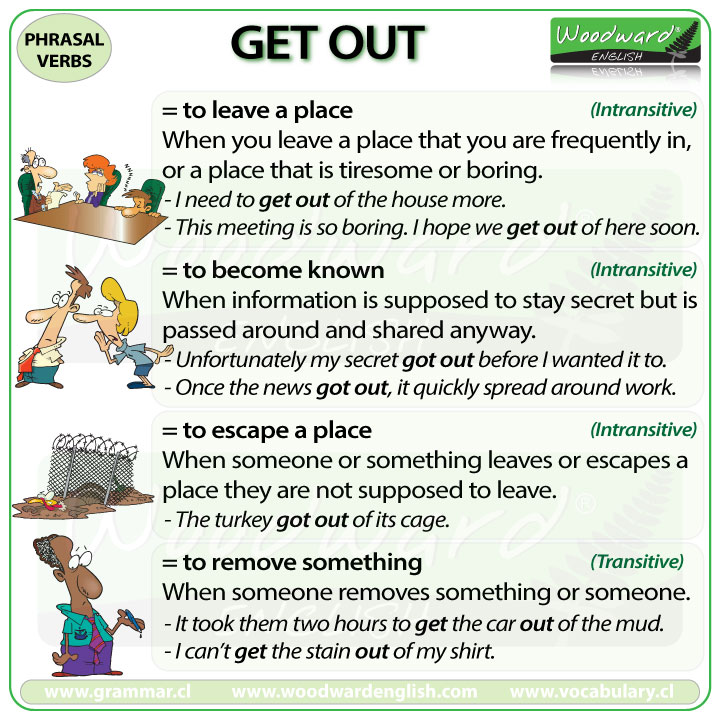The English phrasal verb GET OUT has the following meanings:
1. Get out = to leave a place
(intransitive) When you leave a place that you are frequently in, or a place that is tiresome or mundane. This is often used when you are expressing frustration with a situation. Synonyms are depart or exit.
- I need to get out of the house more.
- Work is so boring; I need to get out of here.
- Paul, get out of this classroom now!
2. Get out = to become known
(intransitive) When information is supposed to stay secret or quiet, but is passed around and shared anyway. Synonyms include divulge, announce, make public.
- Unfortunately, my secret got out before I wanted it to.
- I didn’t want to tell people about my engagement yet, but the news got out.
- Once the news got out, it quickly spread around campus.
3. Get out = to escape a place
(intransitive) When someone or something leaves a place, sometimes by escaping when they were not supposed to leave. Synonyms are flee or run away.
- The horse got out because I left the stable door open.
- If your house catches on fire, you should get out as quickly as possible
- The criminals got out of town before anyone knew they had escaped.
4. Get out = to remove something from a place
(transitive) When someone removes an item or someone from a place. Synonyms are remove or extract.
Note: The object goes in the middle between the two words.
- It took them two hours to get the car out of the mud.
- I got my old guitar out of the garage so that I could start playing again.
- I splashed spaghetti sauce on my shirt and I can’t get the stains out.
Get out – Summary Chart

